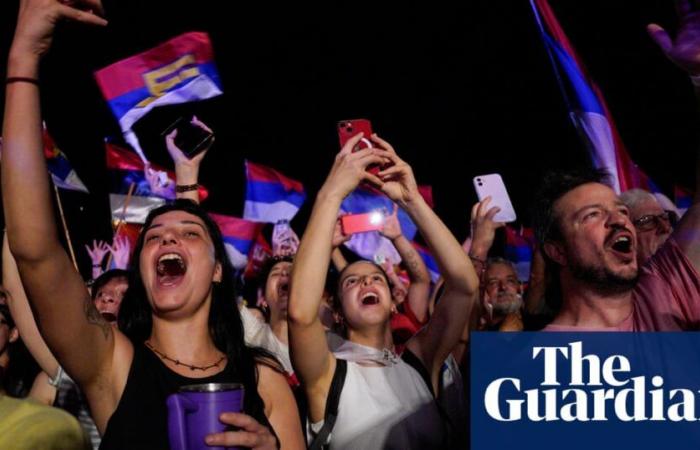Centre-left opposition candidate Yamandu Orsi secured victory in Uruguay’s presidential election, official results showed on Sunday, with 97% of votes tallied, ousting the conservative governing coalition and making the South American nation the latest to rebuke the incumbent party in a year of landmark elections.
Yamandu Orsi, the pre-election favourite by a few points, secured 49.77% of the vote to conservative Alvaro Delgado’s 45.94%, official results showed.
“The horizon is brightening,” said Orsi, a working-class former history teacher and two-time mayor, as he addressed thousands of his Broad Front party supporters in Montevideo, who had gathered by a stage overlooking the capital city’s waterfront to await the results.
“The country of freedom, equality and also fraternity triumphs once again,” he said. “Let’s continue on that path.”
Both Delgado and Uruguay’s president, fellow National party member Luis Lacalle Pou, conceded the election, swiftly congratulating Orsi and offering to help with the transition after results signalled a victory for the centre-left.
“With sadness, but without guilt, we can congratulate the winner,” Delgado told supporters at his campaign headquarters in the capital, Montevideo.
The election between two moderates in the small nation of 3.4 million people, known for its beaches, legalised marijuana and stability, marks the closing of a bumper year for global elections – many that suffered from bitter political divides.
Orsi, Delgado and Lacalle Pou all expressed goodwill for their political opposition and pledged to work together to move the country forward. Unlike sharp right-left divides in recent elections in Argentina, Brazil and Mexico, Uruguay’s political arena is relatively tension-free, with significant overlap between the conservative and liberal coalitions vying for office.
High living costs, inequality and violent crime are among Uruguayans’ biggest worries, but inflation had been easing in the run-up to the election, and both employment and real salaries are on the rise. Orsi, who has pledged a “modern left” policy approach, won 43.9% of the first-round October vote for the Broad Front and faced Delgado, who secured 26.8% but also had the backing of the conservative Colorado party that together with his National party made up almost 42% of votes.
Orsi had sought to reassure Uruguayans that he does not plan a sharp policy shift in the traditionally moderate and relatively wealthy nation. Construction worker Ruben Parada, 44, a resident of Montevideo, said he was voting for Orsi because his Broad Front party “thought less about the rich” and would do more to help working people. Conservative Delgado had asked voters to “re-elect a good government”, seeking to capitalise on the popularity of Lacalle Pou.
While the ruling coalition is struggling to defend its record on tackling crime and is fighting several corruption scandals, it had hoped economic successes might be enough to convince voters to choose continuity over change.
“They did more in five years than the Broad Front did in 15 years,” said 38-year-old Jaqueline Fleitas, who cast her second-round ballot for Delgado, mentioning the construction of a hospital near her home in Montevideo.
Neither coalition has an absolute majority in the lower house following October’s elections. But Orsi’s Broad Front won 16 of 30 Senate seats. He says his Senate majority puts him in a better position to lead the next government.
Sunday’s results confirmed that Uruguay had followed a global trend of incumbent parties losing vote share compared with the previous election, as the biggest year for elections in history comes to an end.






